40 Resume Tips is a comprehensive guide for job seekers to improve their resumes and increase their chances of getting hired. The tips cover various aspects of resume writing, such as formatting, content, and design. Some of the key tips include customizing the resume for each job application, highlighting relevant skills and experiences, avoiding common mistakes like typos and inconsistencies, and using keywords relevant to the job description.
By following these resume tips, job seekers can create a professional and compelling resume that stands out to employers and helps them secure the job they want.
The importance of having a professional and compelling resume
A professional and compelling resume is crucial for job seekers in today’s competitive job market. It serves as an introduction to the employer and provides them with a snapshot of your skills, experiences, and qualifications. A well-crafted resume can make a positive first impression, set you apart from other candidates, and increase your chances of being selected for an interview.
In many cases, the resume is the only information an employer has about you, so it’s important to make sure it accurately reflects your abilities and accomplishments. A professional and compelling resume can give you a significant advantage in the job search process and increase your chances of landing the job you want.
Overview of the 40 resume tips
8 formatting resume tips
- Keep your resume concise, no longer than two pages (three pages at most): It’s important to keep your resume concise and to the point. Most employers don’t have the time or patience to read through a lengthy resume, so aim to keep it to two pages or less. If you have a lot of experience, consider highlighting your most relevant accomplishments and skills rather than trying to include everything.
- Include your contact information at the top of the resume: Make sure to include your full name, phone number, and email address at the top of your resume. This will make it easy for the employer to get in touch with you.
- Don’t include a list of references on your resume. It’s generally best not to include a list of references on your resume. Instead, you can simply include a line that says “References available upon request.” This allows you to tailor your list of references to the specific job you are applying for and ensures that you have permission from your references before providing their contact information to an employer. If an employer requests references, you can provide a separate list of references with contact information for each reference. It’s also a good idea to let your references know that they may be contacted by an employer so that they are prepared and can speak positively about your work.
- Don’t use slang or casual language: Your resume should be professional and formal, so avoid using slang or casual language.
- Don’t include a photo of yourself: It’s generally best to avoid including a photo of yourself on your resume. This can be seen as unprofessional and could potentially discriminate against you.
- Don’t use overly complex language or jargon: It’s important to use clear and concise language on your resume. Avoid using overly complex language or jargon that may not be understood by all readers.
- Don’t use personal pronouns (e.g. “I”, “me”, “my”): It’s generally best to avoid using personal pronouns on your resume. Instead, use third-person language and focus on your accomplishments and responsibilities.
- Don’t use hard-to-read formatting: While it’s okay to use creative formatting to make your resume look polished and professional, it’s important to avoid hard-to-read.
27 content tips for your resume
- Tailor your resume to the specific job you are applying for: It’s important to tailor your resume to the specific job you are applying for. This means highlighting the skills and experiences that are most relevant to the position. Use the job description and requirements as a guide to determine which information to include on your resume.
- Use bullet points to highlight your accomplishments and responsibilities: Bullet points are a great way to highlight your accomplishments and responsibilities in a clear and easy-to-read format. They allow the reader to quickly scan through your resume and see what you have to offer.
- Use action verbs to describe your experiences and achievements: Action verbs help to describe your experiences and achievements in a more dynamic and engaging way. Examples of action verbs include “achieved,” “developed,” “increased,” and “supervised.”
- Use reverse chronological order to list your work experience: It’s generally best to list your work experience in reverse chronological order, with your most recent job listed first. This allows the reader to easily see your most recent and relevant experience first.
- Include a summary or objective statement that clearly communicates your goals and qualifications: A summary or objective statement is a brief overview of your goals and qualifications that appears at the top of your resume. It should clearly communicate what you have to offer and why you are the best candidate for the job.
- Use keywords from the job posting in your resume: Many companies use applicant tracking systems (ATS) to screen resumes before they are reviewed by a human. These systems use keywords to determine which resumes are the best fit for the job. To increase your chances of getting through the ATS, include keywords from the job posting in your resume.
- Proofread your resume for spelling and grammar errors: It’s important to proofread your resume carefully to ensure that it is free of spelling and grammar errors. These types of mistakes can make you appear careless or unprofessional, and may disqualify you from consideration.
- Use numbers to quantify your achievements, such as “Increased sales by 25%.”: It’s not enough to just list your responsibilities and duties on your resume. You should also highlight your accomplishments and quantify them whenever possible. For example, instead of saying “I was responsible for increasing sales,” you could say “Increased sales by 25% through the implementation of new marketing strategies.”
- Use relevant examples to demonstrate your skills and experience: Instead of just listing your skills and experiences, use specific examples to demonstrate how you have used them in the past. This will help to paint a more complete picture of your abilities and accomplishments.
- Emphasize your accomplishments rather than just listing your duties: It’s important to highlight your achievements and accomplishments rather than just listing your duties and responsibilities. This will help you stand out from other candidates and show.
- Keep your work experience and education sections relevant to the job you are applying for: It’s important to only include work experience and education that is relevant to the job you are applying for. Don’t include irrelevant or outdated information, as it can distract from your more relevant experiences.
- Include relevant volunteer or community service experience: If you have relevant volunteer or community service experience, consider including it on your resume. This can help to demonstrate your commitment to helping others and can be particularly relevant for certain types of jobs.
- If you have limited work experience, including internships, co-op positions, or any relevant coursework: If you have limited work experience, consider including internships, co-op positions, or any relevant coursework on your resume. This can help to demonstrate your skills and abilities and can be particularly useful for entry-level positions.
- Use your resume to showcase your strengths and unique abilities: Your resume should showcase your strengths and unique abilities. Think about what makes you stand out from other candidates and include that information on your resume.
- Include any relevant certifications or licenses: If you have relevant certifications or licenses, consider including them on your resume. This can help to demonstrate your expertise in a particular area and can make you a more competitive candidate.
- Consider including a skills section that highlights your abilities: A skills section is a great way to highlight your abilities and showcase what you have to offer. Consider including a list of your technical skills, as well as any soft skills or personal qualities that make you a strong candidate.
- Use industry-specific language and terminology: If you are applying for a job in a specific industry, it’s important to use language and terminology that is specific to that industry. This will help to demonstrate your understanding of the industry and can make you a more competitive candidate.
- Don’t use a generic email address: Be sure to use a professional email address on your resume. Avoid using generic or unprofessional email addresses, such as “info@gmail.com” or “support@yahoo.com.”
- Don’t include personal information, such as your age or marital status: It’s important to leave personal information, such as your age or marital status, off of your resume. This information is not relevant to your qualifications for the job and could potentially discriminate against you.
- Don’t include irrelevant or outdated information: Only include information on your resume that is relevant to the job you are applying for. Don’t include outdated or irrelevant information, as it can distract from your more relevant experiences.
- Don’t include negative information, such as reasons for leaving a previous job: It’s generally best to avoid including negative information on your resume, such as reasons for leaving a previous job. Instead, focus on highlighting your positive experiences and accomplishments.
- Don’t include irrelevant hobbies or interests: It’s generally best to only include hobbies or interests on your resume if they are relevant to the job you are applying for. Otherwise, they can distract from your more relevant experiences and qualifications.
- Don’t include salary information: It’s generally best to avoid including salary information on your resume. This can be seen as inappropriate and could potentially discriminate against you.
- Don’t lie or exaggerate on your resume: It’s important, to be honest on your resume. Lying or exaggerating about your experiences or qualifications can be grounds for disqualification or even termination if discovered after you are hired.
- Don’t forget to include your education and any relevant coursework. It’s important to include your education and any relevant coursework on your resume. Your education can be a key factor in determining your qualifications for a job, so be sure to include your degree, major, and any relevant coursework that is relevant to the position you are applying for. If you have taken any relevant courses or received any certifications that are not part of your formal education, consider including them as well. It’s also a good idea to list your education in reverse chronological order, with your most recent degree listed first.
- Don’t forget to include any relevant awards or honors: If you have received any awards or honors, consider including them on your resume. This can help to demonstrate your achievements and can make you a more competitive candidate.
- Don’t forget to update your resume regularly to reflect your most recent experiences and achievements: It’s important to keep your resume up-to-date to reflect your most recent experiences and achievements. Make sure to review and update your resume regularly to ensure that it accurately reflects your current skills and qualifications.
5 design resume tips
- Use a clear, easy-to-read font and layout: It’s important to use a font that is easy to read and looks professional. Avoid using fancy or decorative fonts, as they can be difficult to read and may not look as polished. The layout of your resume should be organized and easy to follow. Use headings, bullet points, and white space to make the document easy to scan.
- Don’t use a generic resume template: Instead of using a generic resume template, consider creating a unique and professional layout that reflects your personal brand.
- Don’t use bold or italicized text excessively: While it’s okay to use bold or italicized text to highlight important information, it’s important to use it sparingly. Overuse of these formatting elements can make your resume look cluttered and unprofessional.
- Don’t use multiple font types or sizes: It’s generally best to use a single font type and size throughout your resume. Using multiple font types or sizes can make your resume look disorganized and unprofessional.
- Don’t use abbreviations or acronyms without explaining them: If you use abbreviations or acronyms on your resume, be sure to explain to them so that the reader understands what they mean.
When it comes to creating a winning resume, it’s easy to get caught up in the format and design. While these elements are important, the content of your resume is what truly matters. As you will see in the 40 resume tips, the most important aspect of your resume is the content.
While a visually appealing format and design can make your resume stand out, it’s the content that will ultimately sell you as a candidate. A well-crafted resume with strong content will effectively communicate your value to potential employers and increase your chances of landing an interview. Don’t neglect the content of your resume in favor of flashy design elements. Focus on creating a professional and compelling resume that showcases your skills and experiences in the best possible light.
In conclusion, the content of your resume should be your top priority when crafting your job application.
Top resume examples for 2023
Are you tired of sending out countless resumes with no response from potential employers? It’s time to upgrade your resume and stand out from the competition in 2023. These top resume examples will not only help you get noticed but also give you the best chance of landing the job you want.
With these top resume examples, you can be confident that you’re presenting yourself in the best possible light. Don’t wait any longer to upgrade your resume and start making a lasting impression on potential employers. Get hired in 2023 with a professional and compelling resume!
If you follow the 40 resume tips, you’ll be setting yourself up for success in the job market. By customizing your resume for each job application, highlighting your relevant skills and experiences, avoiding common mistakes, and incorporating keywords relevant to the job description, you’ll be creating a professional and compelling resume that catches the eye of potential employers.
Not only will your resume stand out from the rest, but it will also effectively communicate your value and make you a top candidate for the job. By following these resume tips, you’ll be increasing your chances of getting hired quickly and landing your dream job. Don’t wait any longer to take control of your job search and invest in a winning resume today.
Photo by Edmond Dantès from Pexels



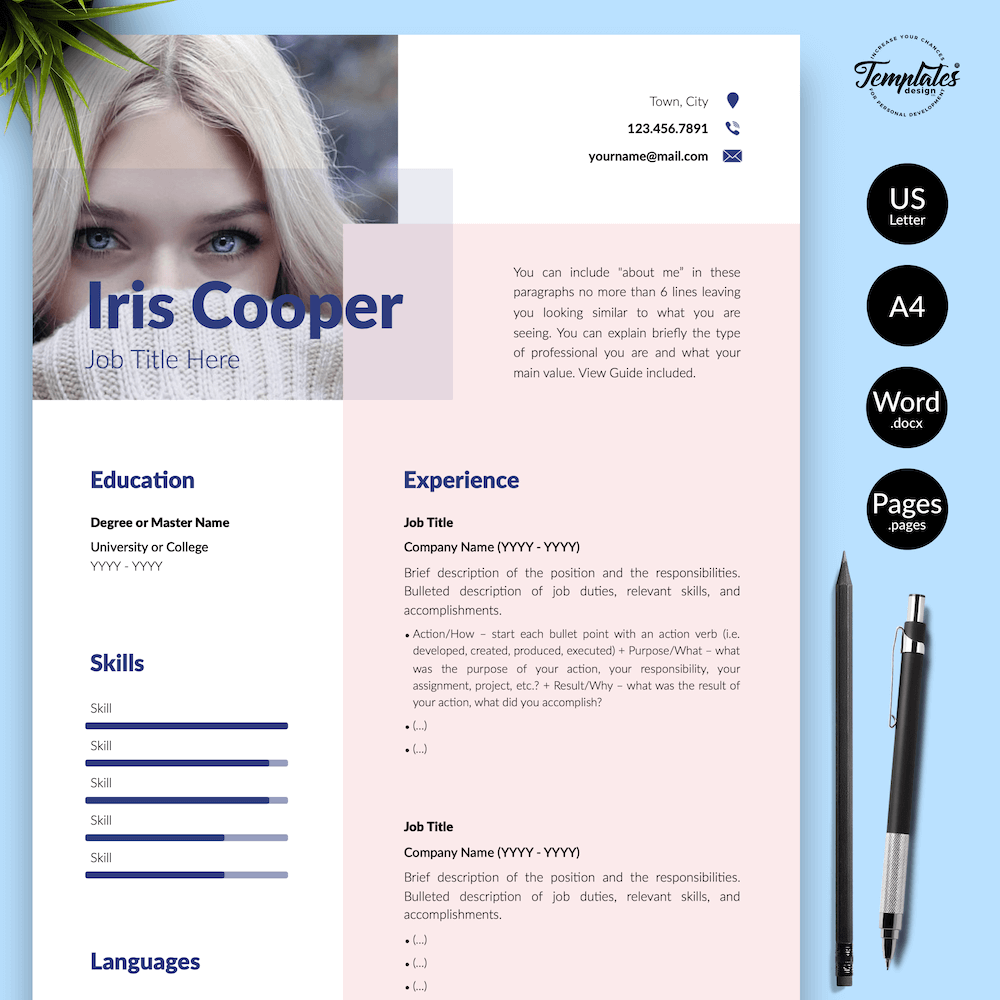
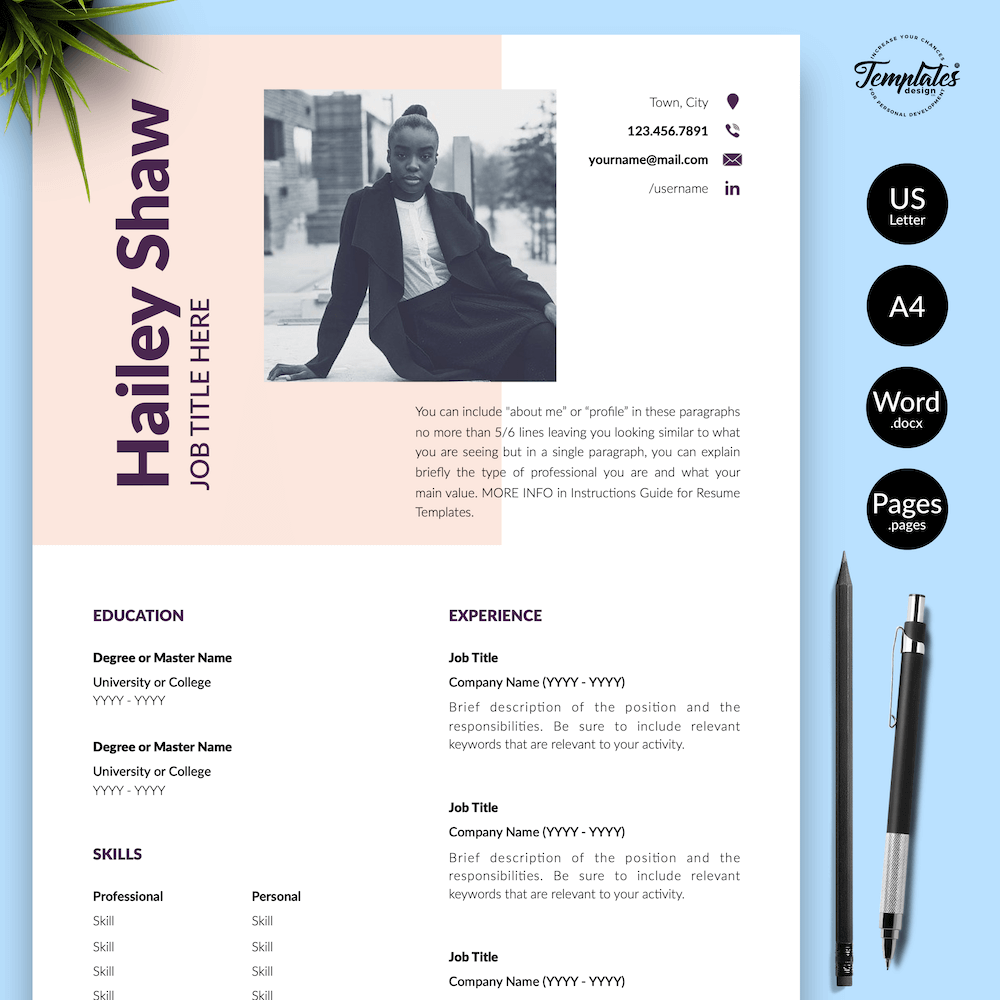
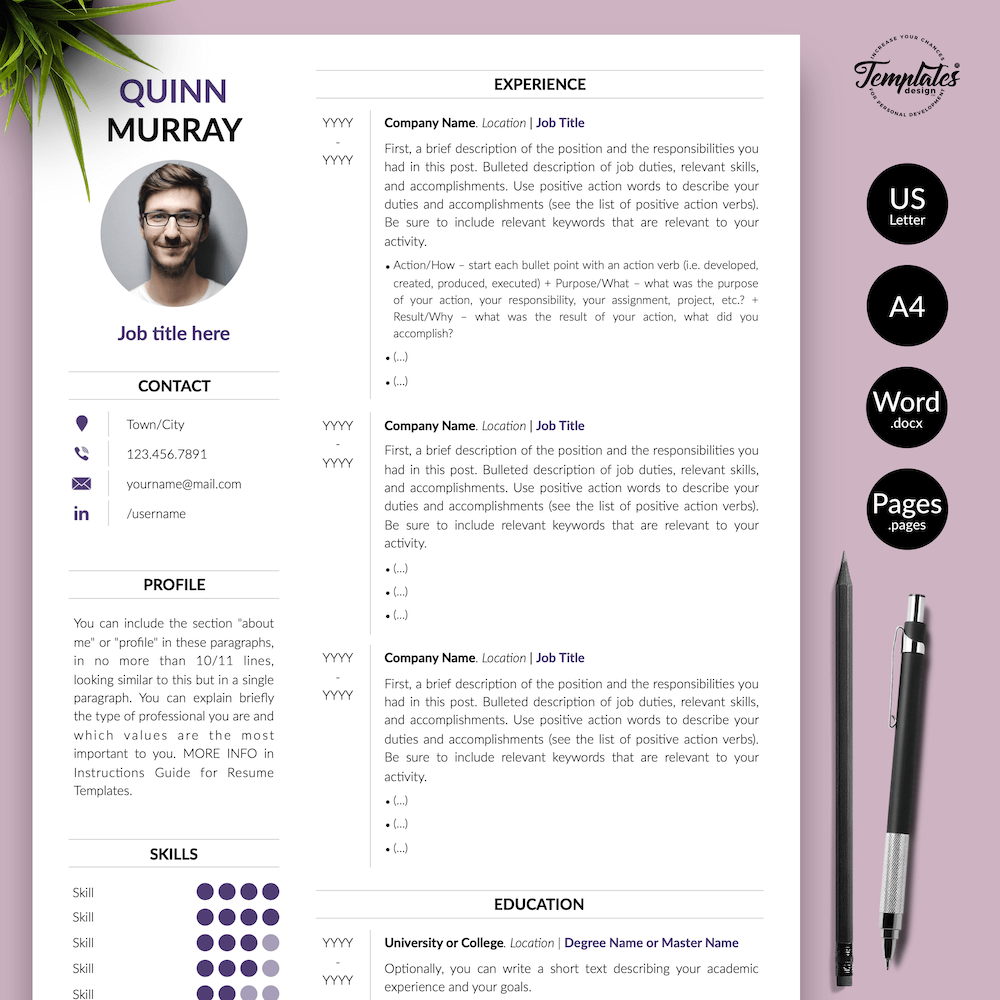
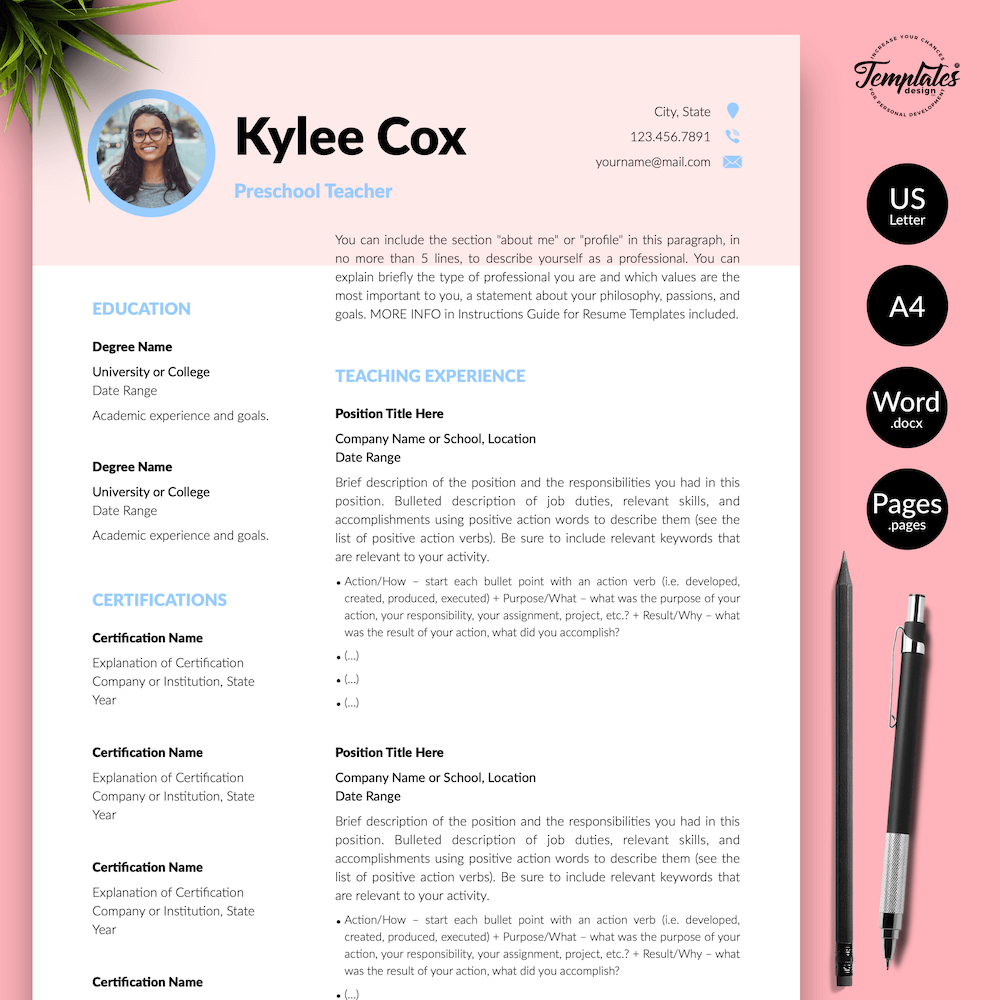
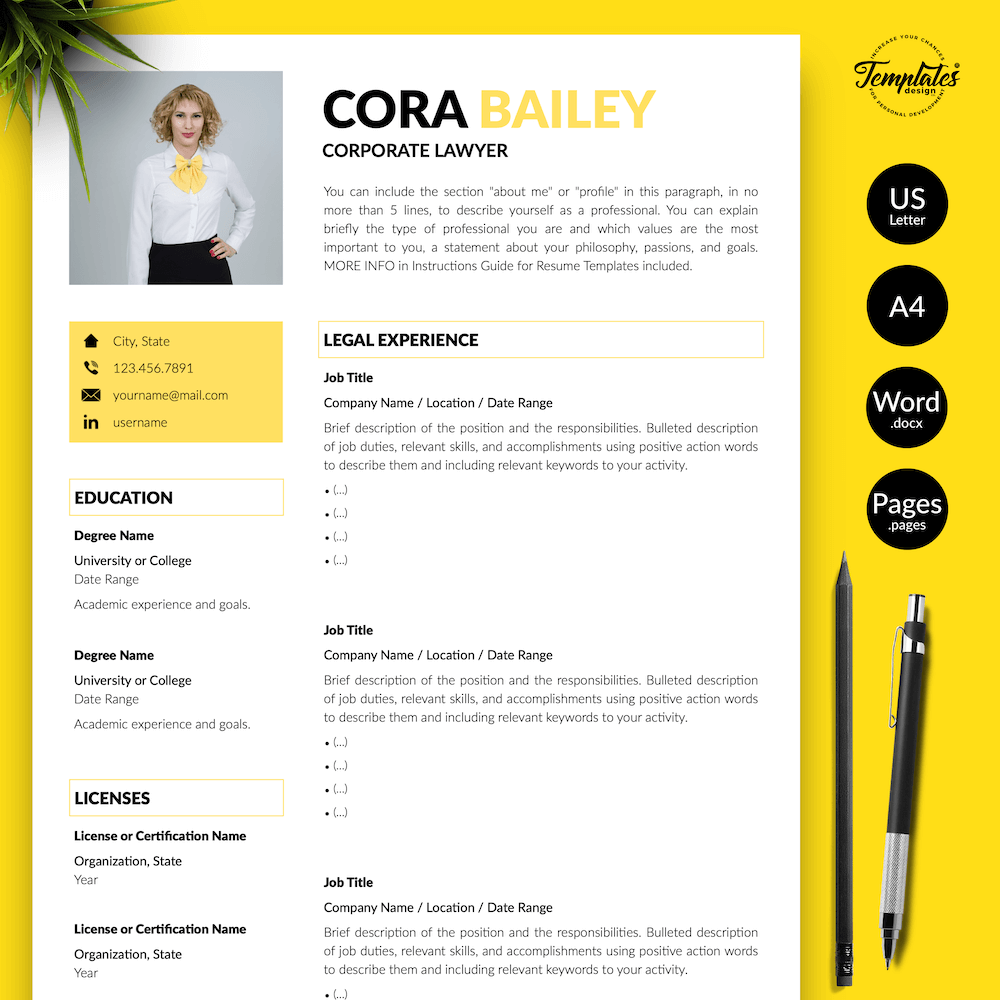
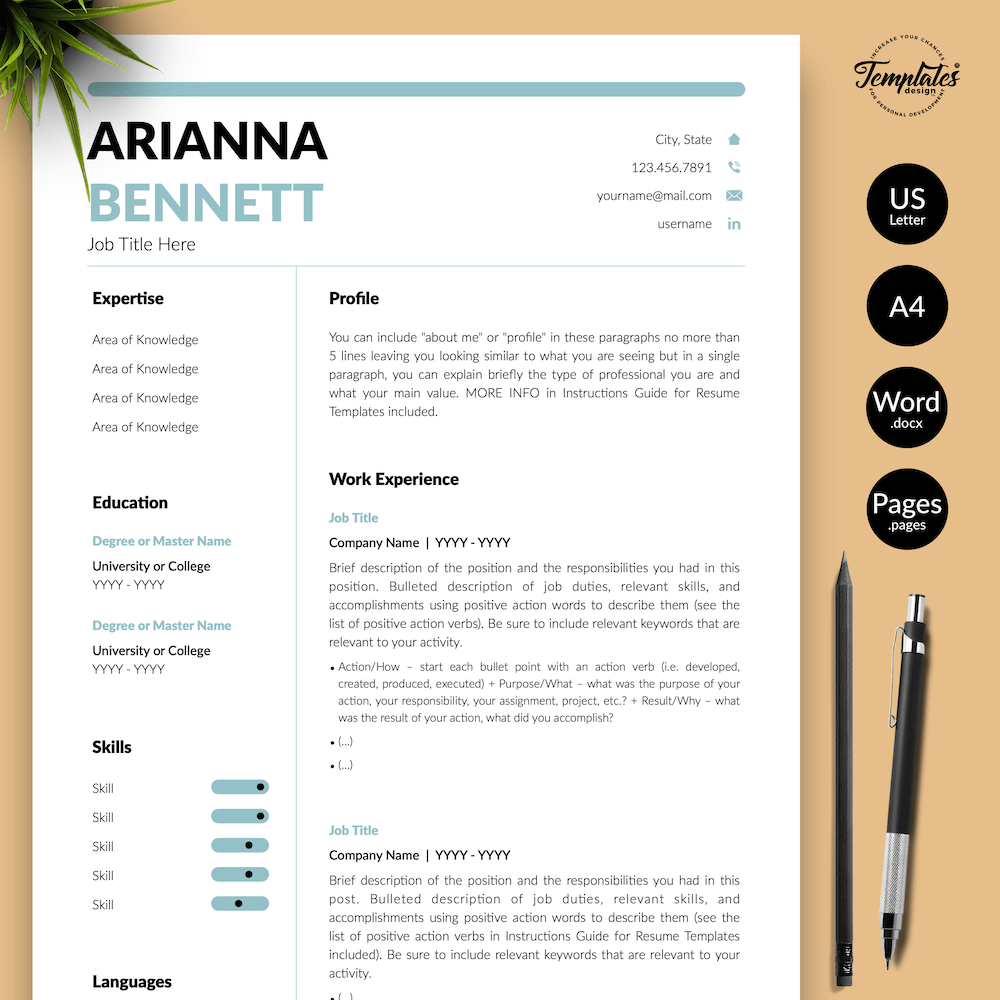
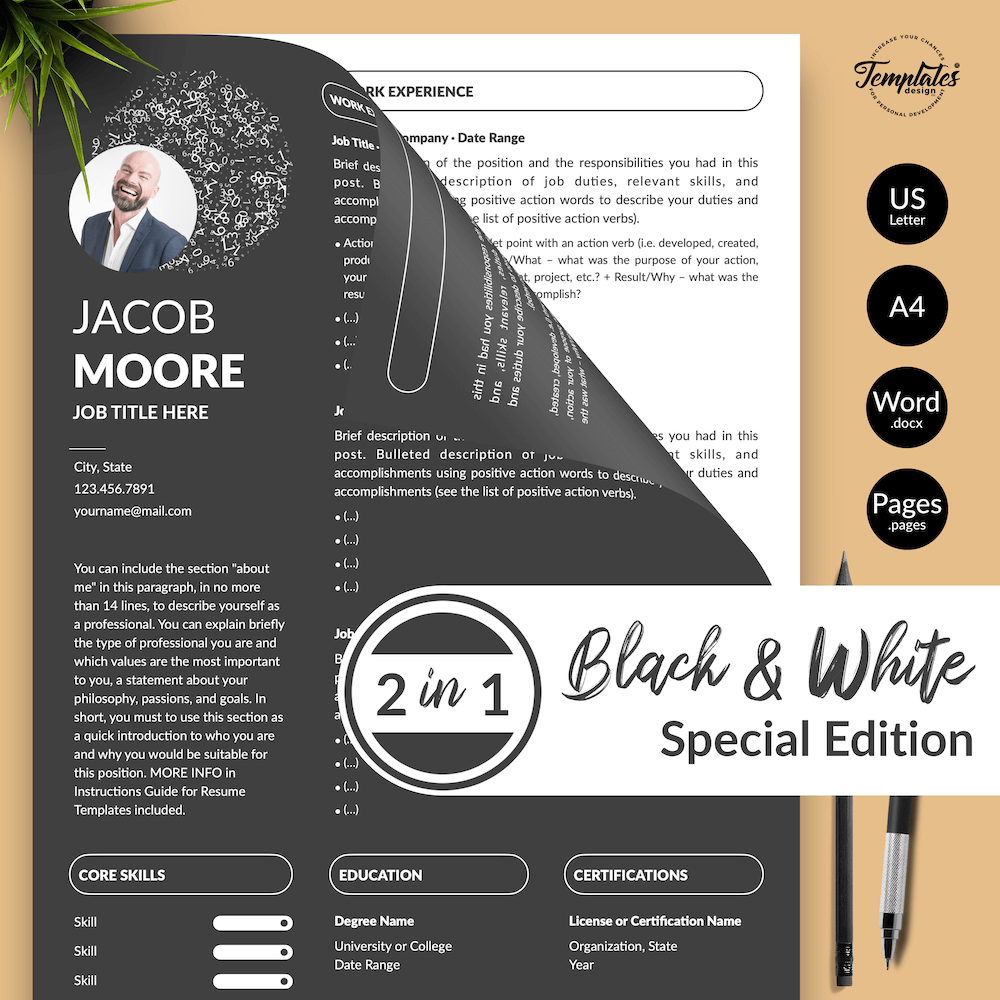
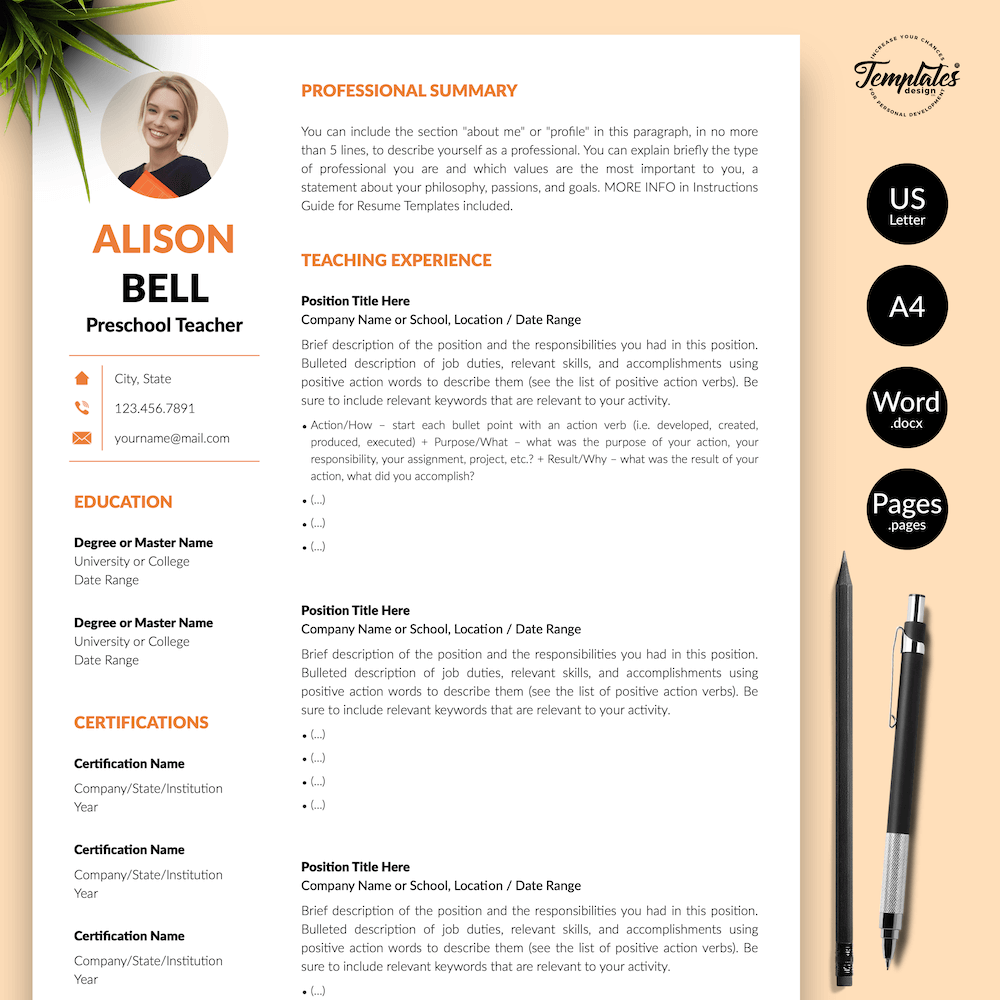
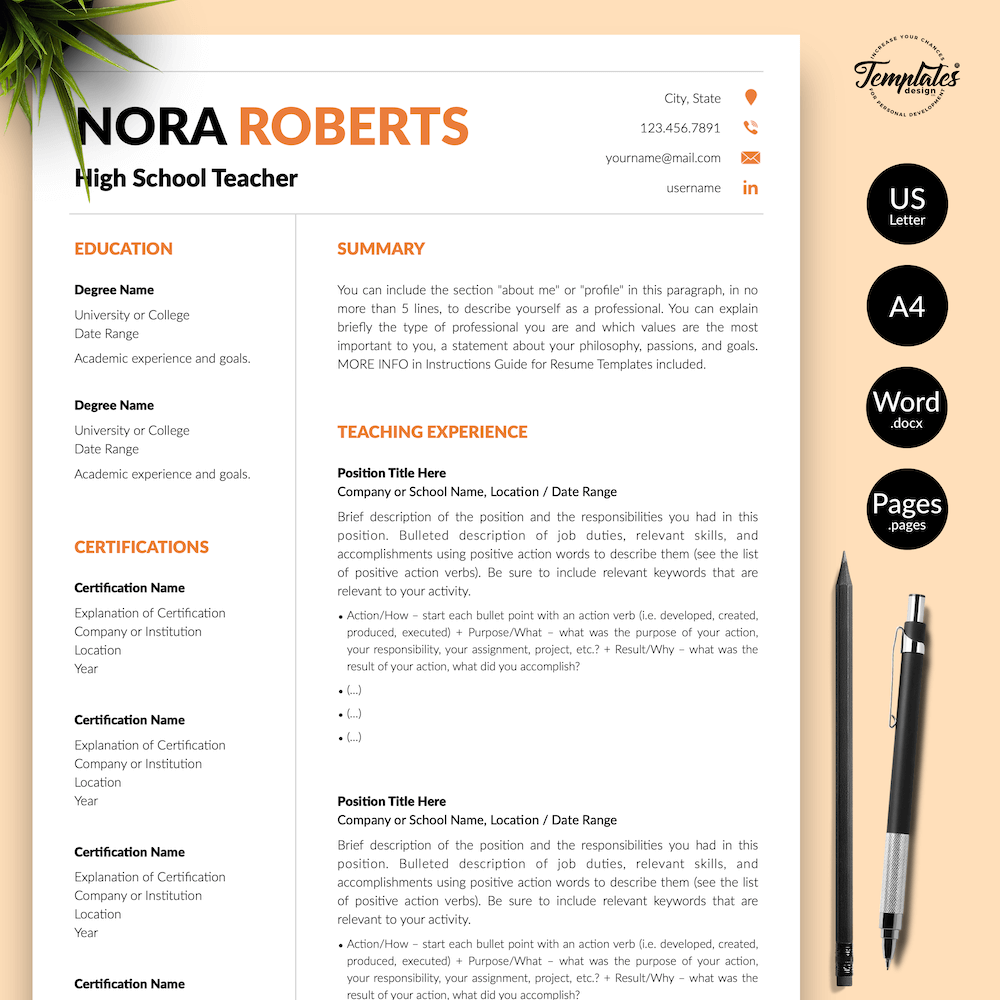
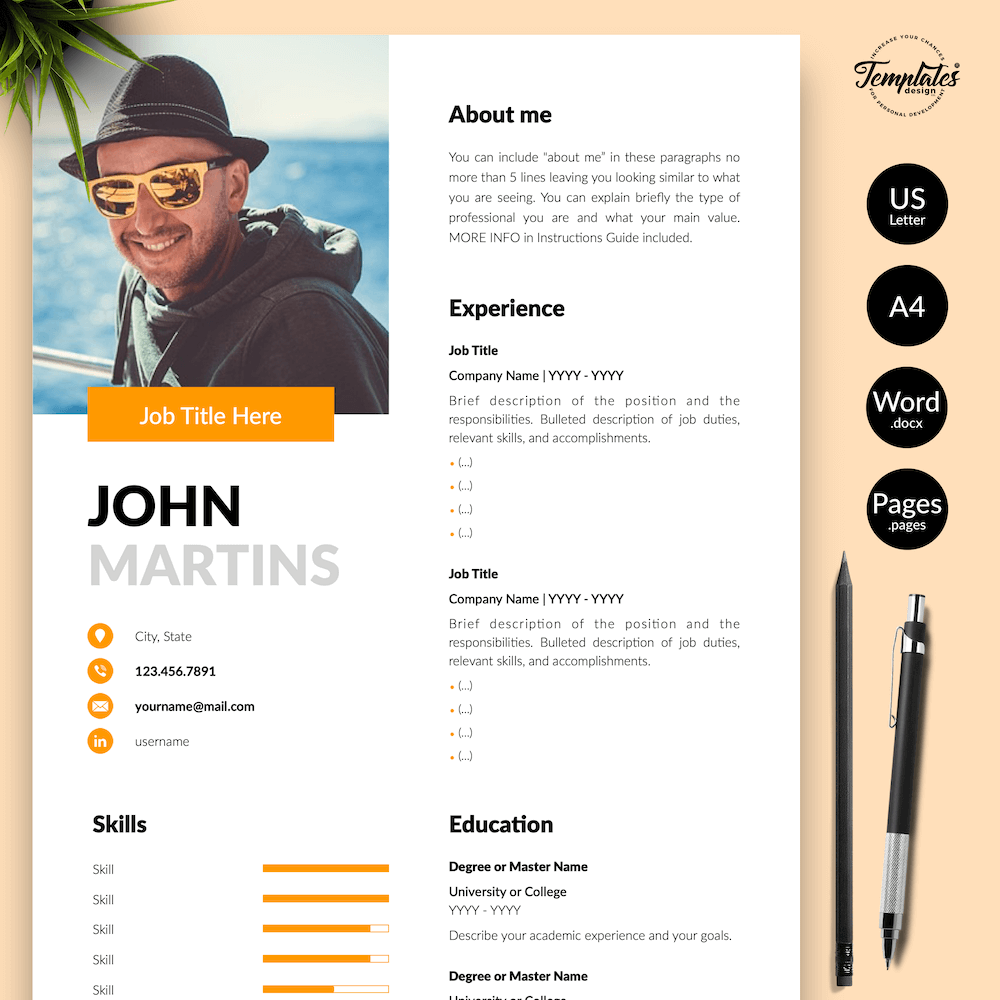
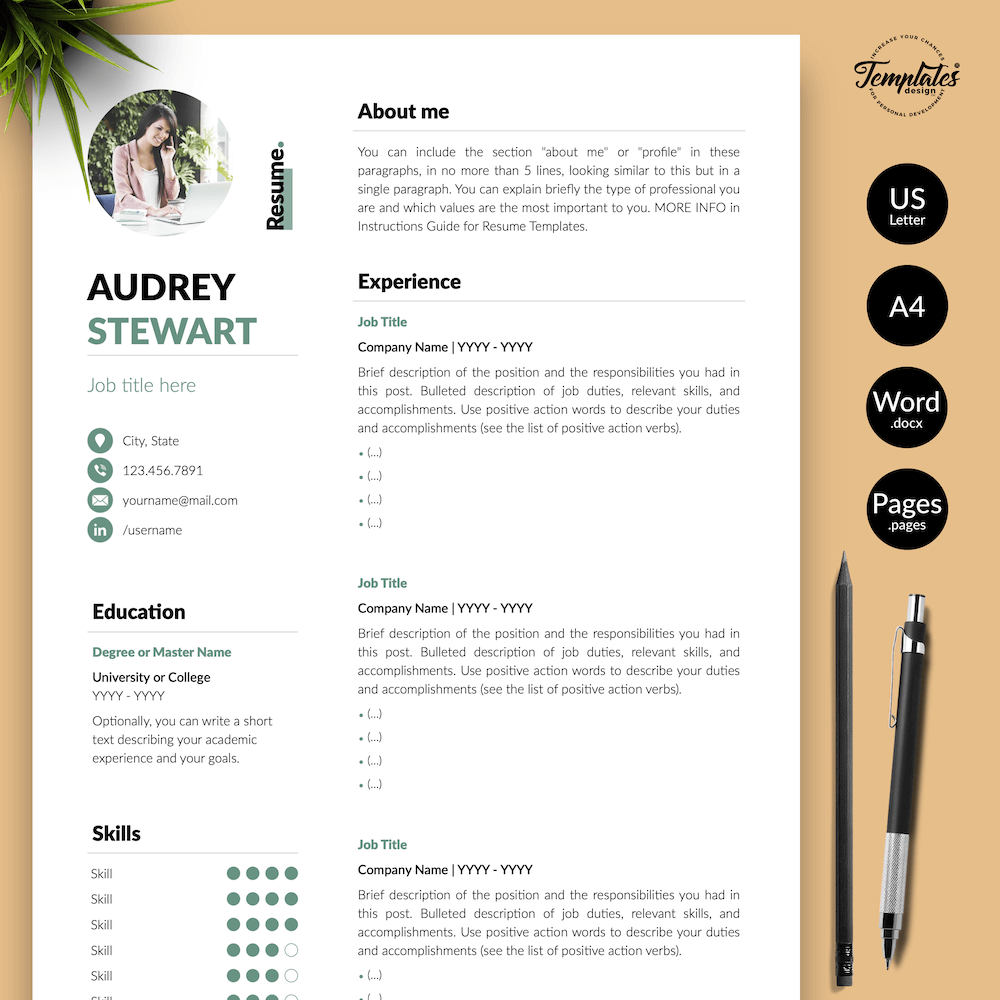
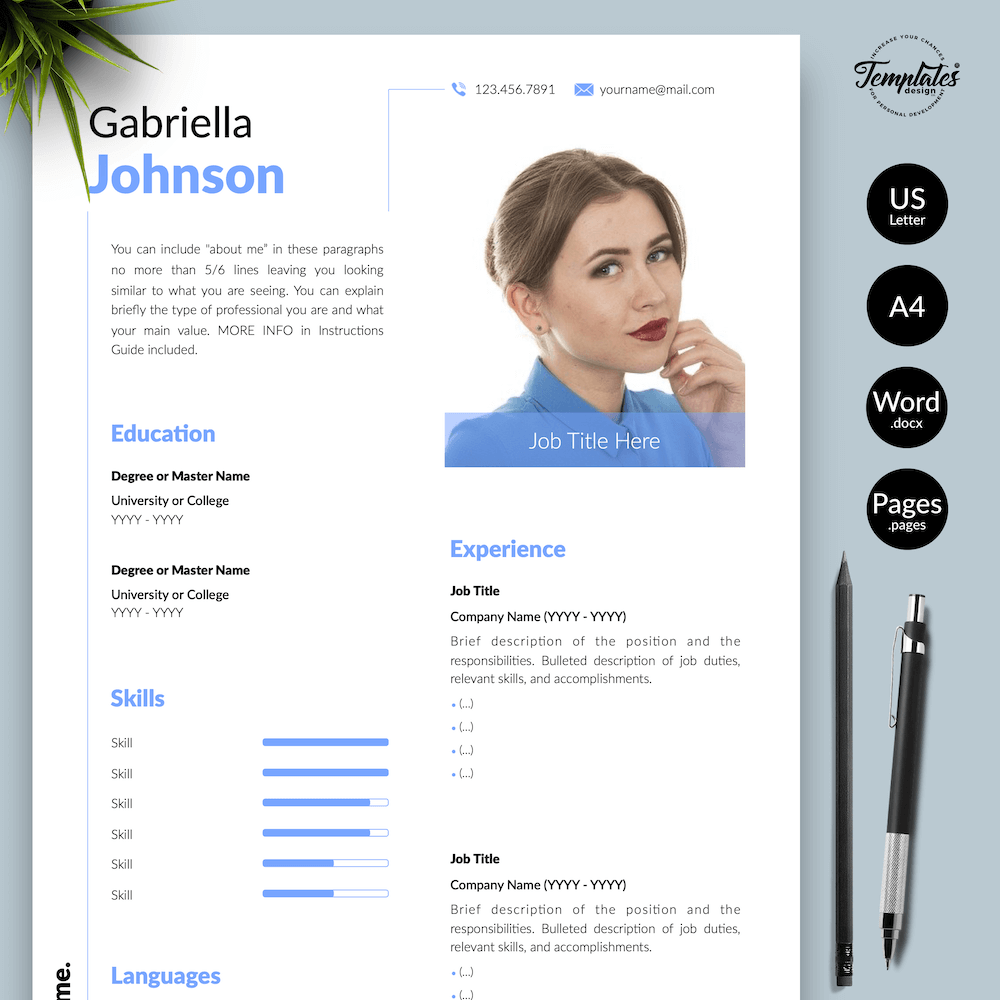
Leave A Comment